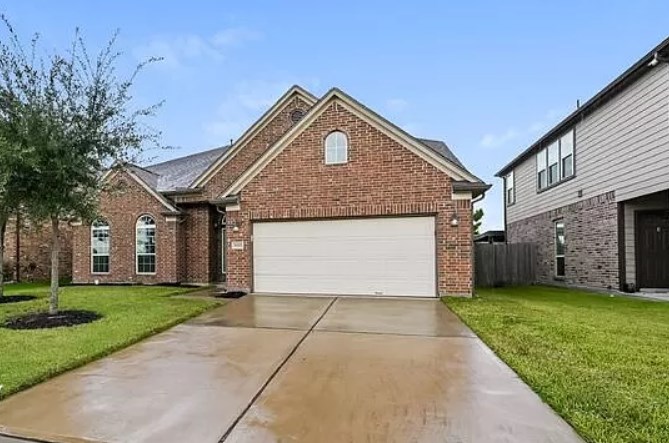 Rent House With Landlord – Floor Plans: 4 Beds, 2.5 Bath, $2,195/mo, 2,624 sqft. Location: 8110 Oahu Ct, Houston, TX 77040. Contact Property: (979) 399-8741. Amenities; Pets: Cats, Dogs, Building Type: Single Family Residence. Schools: Reed Elementary School, Jersey Village High School, Dean Middle School.
Rent House With Landlord – Floor Plans: 4 Beds, 2.5 Bath, $2,195/mo, 2,624 sqft. Location: 8110 Oahu Ct, Houston, TX 77040. Contact Property: (979) 399-8741. Amenities; Pets: Cats, Dogs, Building Type: Single Family Residence. Schools: Reed Elementary School, Jersey Village High School, Dean Middle School.
Navigating the Landlord Relationship: Tips for Renting a House
Introduction
Having a good relationship with your landlord is crucial for a positive renting experience. A strong landlord-tenant relationship can lead to better communication, prompt resolution of issues, and a more enjoyable living environment. In this article, we will explore various aspects of the landlord-tenant relationship and provide tips on how to maintain a positive rapport with your landlord.
Finding the Right Rental Property
When searching for a rental property, it is important to consider factors such as location, size, and amenities. Think about your needs and preferences, and choose a property that aligns with them. Additionally, it is crucial to determine your budget and ensure that the rental property is affordable for you.
Researching the landlord and property management company is also essential. Look for reviews and ratings online to get an idea of their reputation. You can also ask for references from previous tenants to gain insights into their experiences. A responsible and responsive landlord can make a significant difference in your renting experience.
Understanding Your Lease Agreement
Before signing a lease agreement, it is important to thoroughly understand its terms and conditions. Familiarize yourself with key terms such as security deposit, rent escalation clause, and maintenance responsibilities. Pay attention to rent payment due dates, lease renewal and termination clauses, and any penalties for breaking the lease.
If you have any questions or concerns about the lease agreement, do not hesitate to ask your landlord for clarification. It is better to address any uncertainties before signing the agreement to avoid potential conflicts in the future.
Communicating with Your Landlord
Effective communication is the foundation of a good landlord-tenant relationship. Maintain open lines of communication with your landlord and address any concerns or issues in a timely manner. Be respectful and clear in your communication, whether it is through email, phone calls, or in-person conversations.
When communicating with your landlord, it is important to be proactive and provide all necessary information. If you are facing financial difficulties and cannot pay rent on time, inform your landlord as soon as possible. Honesty and transparency can go a long way in building trust and maintaining a positive relationship.
Maintaining a Positive Relationship with Your Landlord
To maintain a positive relationship with your landlord, it is important to follow certain dos and don’ts. Do pay rent on time, keep the property clean and well-maintained, and respect your neighbors. Don’t engage in illegal activities, damage the property, or disturb other tenants.
Building trust and respect is crucial in any relationship, including the landlord-tenant relationship. Be respectful of your landlord’s time and privacy, and treat the property as if it were your own. By being a responsible tenant, you can foster a positive relationship with your landlord.
Handling Maintenance and Repairs
As a tenant, you have certain responsibilities when it comes to maintenance and repairs. It is important to promptly report any issues or damages to your landlord or property management company. Follow the proper channels for requesting repairs and provide all necessary information.
In case of emergency situations such as a burst pipe or electrical failure, contact your landlord immediately. They should have a plan in place to address such emergencies. It is important to document all communication regarding maintenance and repairs for future reference.
Dealing with Rent Increases
To record the state of the property, take pictures or videos of it. If you receive a notice of rent increase, it is important to be prepared and understand your options. Research the local rental market to determine if the increase is reasonable. You can also try negotiating with your landlord for a lower increase or explore other housing options if the increase is unaffordable.
It is important to know your legal rights and protections when it comes to rent increases. Familiarize yourself with local laws and regulations regarding rent control and eviction protections. If you believe the rent increase is unjustified or violates your rights, seek legal advice or consult with a tenant advocacy organization.
Resolving Disputes with Your Landlord
Disagreements and disputes can arise between landlords and tenants. In such situations, it is important to try to resolve the issue through mediation and conflict resolution techniques. Communicate your concerns clearly and listen to your landlord’s perspective.
If the dispute cannot be resolved through mediation, you may need to explore legal options. Consult with a lawyer who specializes in landlord-tenant law to understand your rights and options. Keep in mind that involving legal professionals should be a last resort and should only be done when all other avenues have been exhausted.
Protecting Your Security Deposit
When moving out of a rental property, it is important to take steps to protect your security deposit. Review the terms of your lease agreement regarding the return of the deposit and follow the move-out procedures outlined by your landlord.
Before moving out, thoroughly clean the property and repair any damages caused during your tenancy. Take photographs or videos of the property to document its condition. This documentation can be useful in case of any disputes regarding the return of the security deposit.
Understanding Your Rights as a Tenant
It’s critical for tenants to be aware of their rights and obligations. Familiarize yourself with local laws and regulations regarding tenant rights, fair housing laws, and discrimination protections. Educate yourself about resources available to tenants, such as tenant advocacy organizations and legal aid services.
If you believe your rights as a tenant have been violated, seek legal advice or consult with a tenant advocacy organization. It is important to stand up for your rights and ensure that you are treated fairly and within the bounds of the law.
Moving Out
When it is time to move out of a rental property, there are certain steps you can take to ensure a smooth transition. Give proper notice to your landlord as outlined in your lease agreement. Clean the property thoroughly and repair any damages caused during your tenancy.
Schedule a move-out inspection with your landlord to assess the condition of the property. Provide any necessary documentation, such as photographs or videos, to support your claim that the property is in good condition. By following these steps, you increase your chances of getting your security deposit back in full.
Conclusion
Building a positive landlord-tenant relationship is essential for a smooth and enjoyable renting experience. By finding the right rental property, understanding your lease agreement, communicating effectively, and maintaining the property responsibly, you can foster a positive relationship with your landlord. Remember to know your rights as a tenant and seek legal advice when necessary. By following these guidelines, you can create a harmonious living environment and ensure a positive renting experience.
 Houses for Rent Finding info about Houses for rent
Houses for Rent Finding info about Houses for rent




